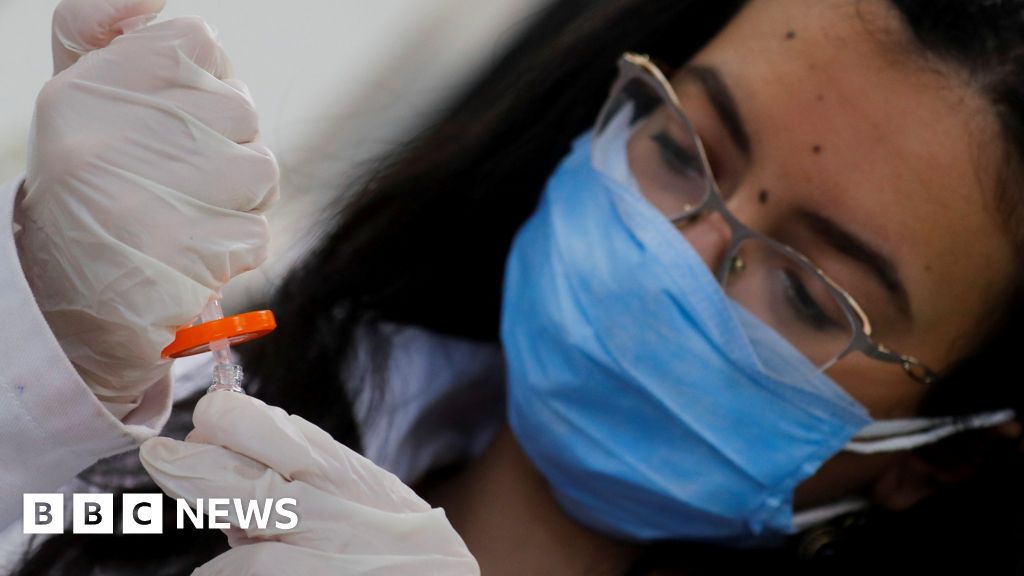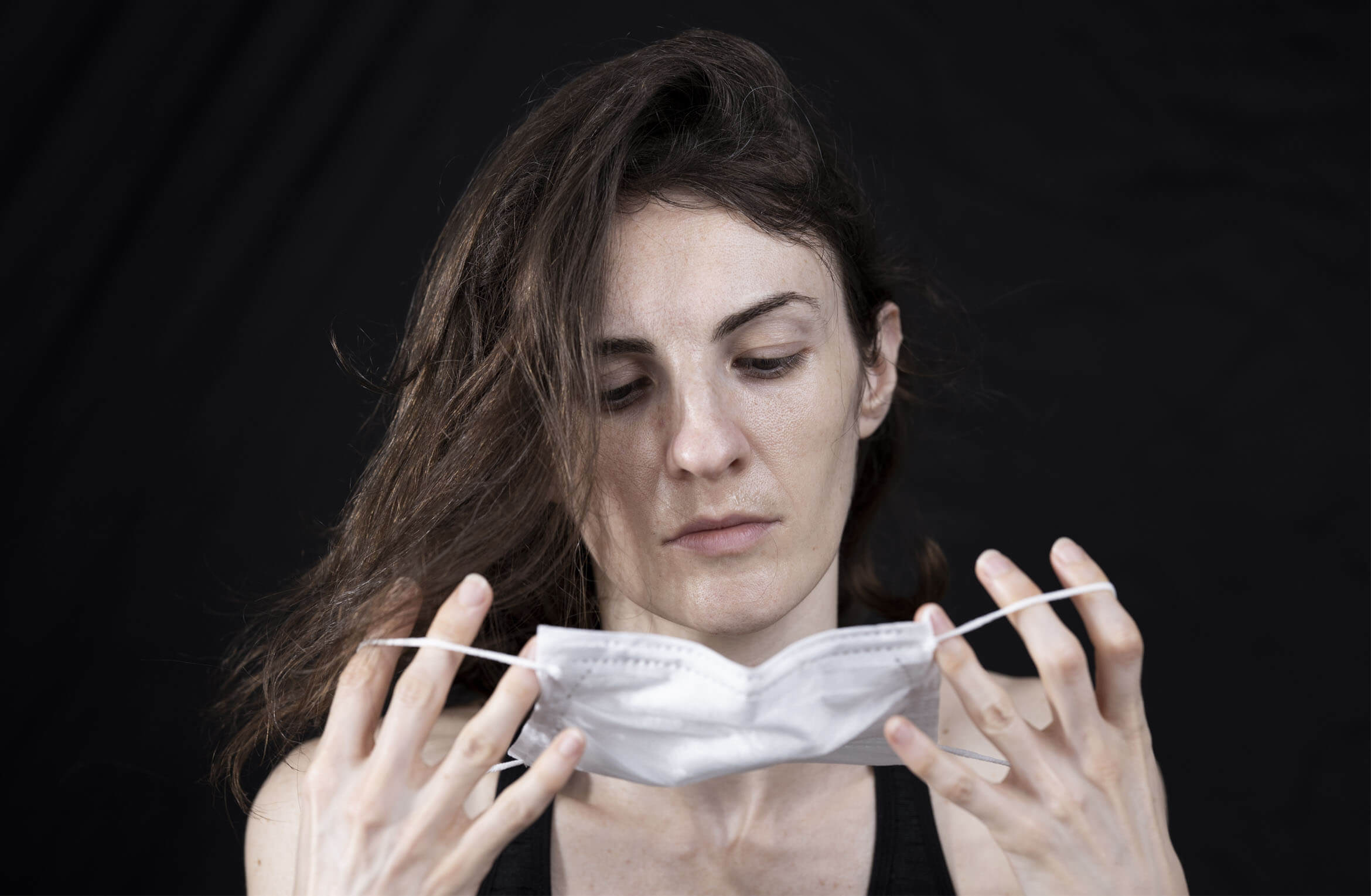12Goblins
Thinks Sydney Sweeney is a man

Covid: Remdesivir 'has little or no effect' on survival, says WHO
Drug manufacturer Gilead has questioned the findings, from a clinical study by the WHO.
o__O


Covid: Remdesivir 'has little or no effect' on survival, says WHO
Drug manufacturer Gilead has questioned the findings, from a clinical study by the WHO.www.bbc.com
o__O
They keep making these "Women are suffering" articles, yet never mention that men are twice as likely to die of Covid 19...



 www.canalstreetchronicles.com
www.canalstreetchronicles.com


Imagine going back in time to October 2019 and showing people this bit of Orwellian horseshit:
Seriously, imagine explaining this.
Imagine going back in time to October 2019 and showing people this bit of Orwellian horseshit:
Seriously, imagine explaining this.




Wasn't there someone in here saying how bad this is ravaging the Netherlands.
I think I believe the kinda hot doctor instead.

I don't appreciate her signaling to everyone how big her wang is during an official press conference.hot doctor, this is the only hottie

I don't appreciate her signaling to everyone how big her wang is during an official press conference.

- Court noted infections in Germany stem from beyond food and drink industry
- It said closing bars would be a 'disproportionate encroachment on freedoms'
- It comes after Angela Merkel warned the country was heading for 'disaster'
German authorities must now decide if they want to take the issue to a higher court to force bars and restaurants to close.


It has now been over a month since Sweden saw in uptick of Covid Cases but yet the deaths have not moved. Still flat lined. How much longer do we need to wait?

I've noticed the relatively surprising number of false positives. In the NFL the have a relatively small number of positive tests to begin with. Of those positives, definitely more than 10% have appeared to be false positives based on retesting. I am a bit surprised nobody ever talks about the implications of that for the broader public.Also, looks like Nick Saban got a false positive too
Why isn't anyone talking about this!
Saban tests negative, could possibly coach Sat.
Alabama's Nick Saban could possibly coach Saturday's home game against No. 3 Georgia after a subsequent COVID-19 test came back negative. Saban remains in isolation and remains asymptomatic and without fever.www.espn.com
I've noticed the relatively surprising number of false positives. In the NFL the have a relatively small number of positive tests to begin with. Of those positives, definitely more than 10% have appeared to be false positives based on retesting. I am a bit surprised nobody ever talks about the implications of that for the broader public.

Covid: Remdesivir 'has little or no effect' on survival, says WHO
Drug manufacturer Gilead has questioned the findings, from a clinical study by the WHO.www.bbc.com
o__O
So sick of this "going to look different this year!" nonsense.
So sick of this "going to look different this year!" nonsense.

Early in the outbreak, the U.S. mortality rate from Covid-19 was lower than in many other hard-hit countries, including the U.K., Spain and the Netherlands, according to the report Monday in the Journal of the American Medical Association. But as spring turned to summer, the U.S. largely failed to embrace public-health and policy measures that have helped other countries reduce death rates.
...
If U.S. deaths after May 10 had occurred at the same pace as in Spain, the U.S. mortality rate would be 47% lower, with 93,247 fewer people dying, the report found. More than 100,000 fewer Americans would have died if the U.S. had the same mortality rate as the Netherlands.
...
The U.S. leads the world in total coronavirus deaths, with 214,776 as of Monday, according to data from Johns Hopkins University.
Near-future porn sucks, man!
America was doing awesome from May 10th (the date arbitrarily picked by the Bloomberg article) until the week of June 8th or so. What could possible have happened around May 25th that changed things?The US mortality rate from COVID-19 is now the worst among the developed world, after being lower than many other badly affected countries early on.

U.S. Virus-Death Rate Is World’s Worst Among Developed Nations
The proportion of Americans dying from coronavirus infections is the highest in the developed world, according to a study of global mortality rates that shows the U.S. pandemic response left citizens exposed to the lethal disease.www.bloomberg.com
Also, looks like Nick Saban got a false positive too
Why isn't anyone talking about this!
Saban tests negative, could possibly coach Sat.
Alabama's Nick Saban could possibly coach Saturday's home game against No. 3 Georgia after a subsequent COVID-19 test came back negative. Saban remains in isolation and remains asymptomatic and without fever.www.espn.com

People with a poor understanding of quantitative information are more likely to endorse myths about COVID-19 and those who believe such misinformation are less likely to follow public health guidance such as wearing a mask in public, according to new research. The study appears in the journal Royal Society Open Science.
...
"Misinformation has been one of the major focal points of our research since early 2018. Misinformation about COVID-19 has rapidly become a significant problem, with the WHO declaring an 'infodemic' and people setting fire to mobile phone masts because of conspiracies surrounding 5G networks,"
...
The most consistent predictor of susceptibility to COVID-19 misinformation, however, was performance on the numeracy tests. Those tests did "not merely measure mathematical ability" but instead assessed "the ability of individuals to understand and use quantitative information more broadly," the researchers noted.
...
The study, "Susceptibility to misinformation about COVID-19 around the world", was authored by Jon Roozenbeek, Claudia R. Schneider, Sarah Dryhurst, John Kerr, Alexandra L. J. Freeman, Gabriel Recchia, Anne Marthe van der Bles and Sander van der Linden.
This won't come as a surprise to most: Study: Heightened susceptibility to misinformation linked to reduced mask wearing and social distancing

Heightened susceptibility to misinformation linked to reduced mask wearing and social distancing
People with a poor understanding of quantitative information are more likely to endorse myths about COVID-19 and those who believe such misinformation arewww.psypost.org
The abstract begins with "Misinformation about COVID-19 is a major threat to public health."
The journal article is pretty short (as far as they go) and the information presented clearly. What I found interesting was that a conservative political association didn't increase susceptibility to misinformation in the UK or US, but it did in every other country included in the study. Yet in the US an aversion to mask wearing, refusal to socially distance, and a rejection of clear and obvious data regarding the viruses spread, are all things that are only endorsed by the conservative party here in the 'States.
This won't come as a surprise to most: Study: Heightened susceptibility to misinformation linked to reduced mask wearing and social distancing

Heightened susceptibility to misinformation linked to reduced mask wearing and social distancing
People with a poor understanding of quantitative information are more likely to endorse myths about COVID-19 and those who believe such misinformation arewww.psypost.org
The abstract begins with "Misinformation about COVID-19 is a major threat to public health."
The journal article is pretty short (as far as they go) and the information presented clearly. What I found interesting was that a conservative political association didn't increase susceptibility to misinformation in the UK or US, but it did in every other country included in the study. Yet in the US an aversion to mask wearing, refusal to socially distance, and a rejection of clear and obvious data regarding the viruses spread, are all things that are only endorsed by the conservative party here in the 'States.
"Wuhan, the city at the center of the coronavirus pandemic, had the most tourists of any Chinese city during a public holiday in October. Wuhan is overcoming its pandemic past and benefiting from its hero-city status to become a top travel destination." (10/17/20)

There is a control group, but it consists of those receiving the standard treatment, rather than nothing, since it would be unethical not to treat coronavirus patients. As I understand it the hospitals themselves are responsible for making the diagnosis of a coronavirus infection, as it is an opt-in trial. If there are significant methodological flaws, they should be detected when the study is peer reviewed for publication in a medical journal.The solidarity trial is yet another instance where they go in with no control group, no placebo group, no diagnostic confirmation of infection to begin with, and then declare facts about a drug based on their shoddy methodology.
It is being trashed pretty heavily by people who do this job for a living, but I guess it got the media their headlines, so it served its purpose.
